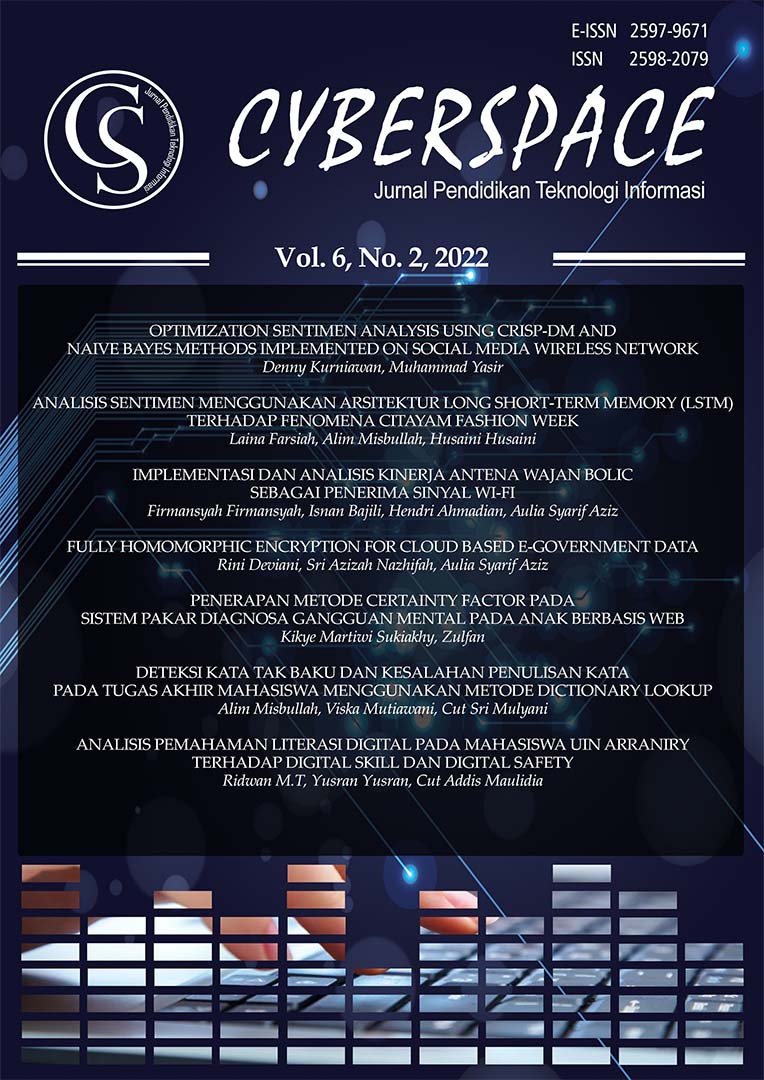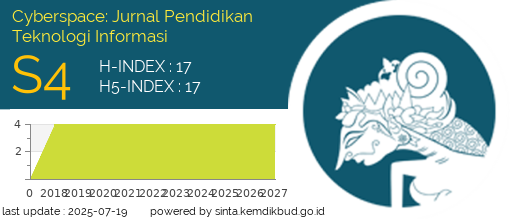Fully Homomorphic Encryption for Cloud Based E-Government Data
DOI:
https://doi.org/10.22373/cj.v6i2.14861Abstract
Cloud computing is a way of providing services, networks, hardware, storage, and interfaces for the construction of E-Government infrastructure that enables the delivery of services efficiently and achieves cost savings. Cloud services enable individuals and organizations to utilize cloud providers’ software and hardware resources stored remotely. The span between the client and the actual location of his data provides a barrier because this data can be obtained by a third party, risking the citizen’s data privacy. We examine a method based on the Fully Homomorphic Encryption (FHE) scheme in order to facilitate the processing of sensitive information pertaining to the E-Government that does not involve the disclosure of the original data. In this paper, we consider some general data operations to evaluate the feasibility of the FHE method and show that the accuracy are similar when data operations are applied to homomorphically encrypted data. The results of the experiment highlight the potential of the various privacy-preserving data operations that can be performed under FHE approach. These methods provide results that are equivalent to those achieved by unencrypted data and models within a decent amount of time.Downloads
Published
2022-10-29
Issue
Section
Articles
License
Authors who publish with Cyberspace Journal agree to the following terms:
- Authors retain copyright and grant the journal right of first publication with the work simultaneously licensed under a Creative Commons Attribution License that allows others to share the work with an acknowledgement of the work's authorship and initial publication in this journal.
- Authors are able to enter into separate, additional contractual arrangements for the non-exclusive distribution of the journal's published version of the work (e.g., post it to an institutional repository or publish it in a book), with an acknowledgement of its initial publication in this journal.
- Authors are permitted and encouraged to post their work online (e.g., in institutional repositories or on their website) prior to and during the submission process, as it can lead to productive exchanges, as well as earlier and greater citation of published work (See The Effect of Open Access).



















